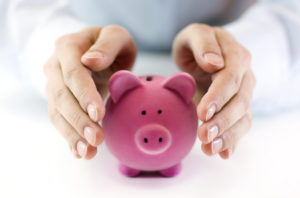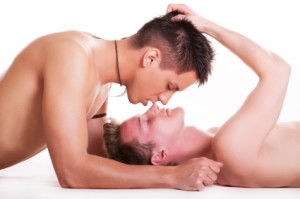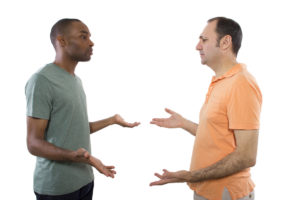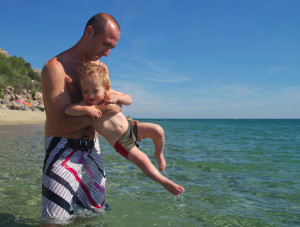
As I think back on the past 24 years (by 2014) of providing couples counseling for gay male relationships, I sometimes get asked what the differences are that I see (in general) in gay male relationships that are (in general) different from straight relationships.
In no particular order, below, are some of my thoughts. I offer these to both single and coupled gay men, in order to give my perspective based on what I’ve observed in gay couples in my practice through the years. My experiences and observations as a gay men’s specialist therapist might differ from other gay men, and even other gay male therapists, and we always have to be mindful of not indulging in unfair assumptions, stereotypes, or even prejudices. But since making a relationship work, which I define, in part, as the relationship’s level of satisfaction for each partner and in its overall longevity and subjective relationship quality for each partner, is at least in part based on a skills-building process, perhaps offering my perspective sheds light on the skills required for a gay male relationship to both endure and thrive.
Here are my thoughts on different aspects of relationships that tend to come up over and over in the content of the couples therapy sessions:

1. Money – Gay male couples can have a lot of conflict around money. Statistically, white men tend to be relatively high earners. While it’s true that gay men in society often face discrimination, there can also be “male privilege”. The sexism that women only earn a portion of what men earn, for the same work, extends to both gay men and straight men. Both gay men and straight men will compete with each other regarding financial “success”, however they define it. And this competition can be within those groups, between those groups, or even within the gay couple itself. It’s hard to find a gay male couple where issues of competition don’t come up, whether regarding physical appearance, social influence, or income. When money issues come up in gay male relationships, I believe it’s because all American men (and elsewhere) are still, even in our oh-so-modern times, expected to the “breadwinners”. White men, especially middle class or higher in socio-economic status, are socialized and used to “getting their way”, among all demographics. Gay men of color face a dual challenge in managing social reactions and pressures both to being gay and of color, and also gender expectations. It’s a lot of potential pressures to face and overcome. Straight men face a lot of pressure, still, to earn more than their wives/girlfriends. Conversely, a straight man who earns less than his wife can feel humiliated, jealous, or dejected, all from society’s strong and ubiquitous messages of what it expects from men – it’s not even up for discussion or conscious awareness; it just “is”. So when two gay men form a relationship, issues of each partner competing to be the “breadwinner” can arise. It’s like some kind of pissing contest. There can also be an irony that the older, higher-earning partner can be the sexual bottom role in the relationship, and it’s in the bedroom where issues of power, control, and dominance can be “played with”, reversed, or expressed. In every gay male relationship, there is overt power, and there is covert or “passive-aggressive” power. How these dynamics are expressed, and the conflicts that can result, are often the impetus for entering couples therapy.
The gay men that I work with are often from mixed cultures or different nationalities. I’m not sure why this is; I really don’t think it’s because gay male couples “have more problems” than straight couples, or even that cross-cultural gay couples can’t get by without couples therapy. Maybe it’s that the cultural differences add an extra layer of challenge that can be a source of conflict. But it also adds an extra layer of mystery, excitement, exoticism, and fun. But along with cultural differences, such as language, food, spirituality, traditions, and habits, can be cultural differences about money. So, in couples therapy, differences and conflicts that arise about “money issues” on the surface are really differences in culture, even just differences “family culture” in the family of origin, even if both partners are the same nationality/ethnicity.
Couples therapy helping a gay couple resolve conflicts about money often involves my helping the partners understand that their life is not a competition, or that one partner must dominate or be declared the “winner”. Rather, it’s about helping the men understand that their household is not two “I” that live under the same roof; it’s about forming a “we”. Forming a “we”, where each partner is a 50/50 stakeholder in the relationship, can be hard for men, because in general men are taught to “control” and “dominate” most relationships from the time we are little boys in ways that they don’t even realize that they’re doing it (if you don’t believe me, just ask a lesbian friend if that statement is true, and she can probably describe her own experiences of observing many examples of male privilege!).
Unlike straight couples, who up until relatively recently had the monopoly on legal recognition of their relationships (before domestic partnerships and marriage equality laws), gay men were treated by the law as two individuals under one roof, especially for tax purposes. Straight married couples are socialized to “blend” their money more readily, and they have their parents’ example and subtle behavioral modeling to follow. They are more likely to have joint bank accounts, joint tax filing, and automatic rights of survivorship on everything from 401ks to pension and Social Security survivor benefits – and they have for generations. Gay men are socialized to think more individually, and the idea of “blending” their two individual incomes into one “household income” once they are coupled is a kind of mental and emotional hurdle that only softens with increased time and trust.
Couples therapy can involve brainstorming, identifying, evaluating, and implementing specific money management plans in the household so that both partners feel like they are making an equal contribution, even if there is a vast difference between Partner A and Partner B’s incomes.
Also in couples therapy, I often recommend books and other resources for gay couples to increase their “financial literacy”, including making referrals to gay or gay-friendly certified financial planners, books on financial management by trusted authors, or educational websites. By using examples from my own relationship, work with previous clients, and from my friends, I give examples on how gay couples have successfully increased their financial stability by increasing their knowledge and skills in money management, at whatever income level or age.
 2. Sex – Gay male couples tend to approach sex differently from straight couples. We all know that gay male couples are much more likely to entertain the idea of, or even be in, a non-monogamous relationship. Part of this is cultural and historical; part of this is the nature of men’s sexuality in general (hey, truth be told, MANY more straight men would be non-monogamous if given the opportunity by their wives, as I have learned from working with straight men in my practice, and some (just like gay men) take that prerogative even if it’s directly violating a monogamy agreement). Gay men are much more likely, in general, to only “not” be appalled at the idea of another person (man) having sex with their partner/spouse, but to be turned on by it. Gay men have a greater capacity (in general) for “sport sex”, and less about foreplay. Without a woman present, the sexual equation changes. You really can’t directly compare a straight couple’s sex life with a gay male couple’s sex life because some things just don’t “translate” culturally, physically, socially, emotionally, etc. So, part of my job in couples counseling is to help gay men understand this, and to avoid making direct comparisons to straight relationships all the time (some of the time is OK, particularly in confronting double-standards and internalized homophobia). Part of my expertise as a gay men’s specialist therapist is to understand the special cultural considerations of gay men, by this point in my life and career, in extreme detail of “cultural competency” of psychotherapeutic/clinical social work practice. By validating to a gay male couple that their sex life must be discussed not only “apart” of any heteronormative expectations, but also independently of even OTHER gay male relationships by comparison, the couple can be reassured that the decisions and practices they make are unique and customized to them. There is no one proper “cookie-cutter” sex life for gay male couples that fits all.
2. Sex – Gay male couples tend to approach sex differently from straight couples. We all know that gay male couples are much more likely to entertain the idea of, or even be in, a non-monogamous relationship. Part of this is cultural and historical; part of this is the nature of men’s sexuality in general (hey, truth be told, MANY more straight men would be non-monogamous if given the opportunity by their wives, as I have learned from working with straight men in my practice, and some (just like gay men) take that prerogative even if it’s directly violating a monogamy agreement). Gay men are much more likely, in general, to only “not” be appalled at the idea of another person (man) having sex with their partner/spouse, but to be turned on by it. Gay men have a greater capacity (in general) for “sport sex”, and less about foreplay. Without a woman present, the sexual equation changes. You really can’t directly compare a straight couple’s sex life with a gay male couple’s sex life because some things just don’t “translate” culturally, physically, socially, emotionally, etc. So, part of my job in couples counseling is to help gay men understand this, and to avoid making direct comparisons to straight relationships all the time (some of the time is OK, particularly in confronting double-standards and internalized homophobia). Part of my expertise as a gay men’s specialist therapist is to understand the special cultural considerations of gay men, by this point in my life and career, in extreme detail of “cultural competency” of psychotherapeutic/clinical social work practice. By validating to a gay male couple that their sex life must be discussed not only “apart” of any heteronormative expectations, but also independently of even OTHER gay male relationships by comparison, the couple can be reassured that the decisions and practices they make are unique and customized to them. There is no one proper “cookie-cutter” sex life for gay male couples that fits all.
While this is also true for straight couples, issues of monogamy, frequency, type of sex, the “vanilla-versus-kink” spectrum, BDSM, and even time management discussions differ. While this is not necessarily unique to gay men, a big factor can be finding time for sex, when often both partners are busy, high-level executives or professionals who work extraordinarily long hours.

3. Household Chores – Perhaps surprisingly to a non-clinician, the issue of how to equitably and fairly divide the list of common household chores can be frequent topic in conjoint therapy. While modern straight couples sometimes like to pretend that they are oh-so-liberated, in reality, in many (or most) cases, the woman is subtly expected to, and ends up doing, the majority of the household chores related to keeping things clean, organized, in good repair, supplied, delivered, monitored, and humming along. There is certain quality of “Mrs. Hughes” from “Downton Abbey” in even the most liberated modern wife and mother, because, again, men are still SO socialized against these things in favor of the “primary breadwinner” duties outside the home, or the more physical/mechanical duties of the house, car(s), or yard. Even straight couples who buck this are often very much aware, either with themselves or with other people’s reactions, they are indeed bucking the “tradition” (societal expectation). So, when two gay men form a relationship and have a domestic component to their lives, there can be friction about who does what, and who is “expected” to do what. There are no traditional gender roles to point everyone in the “right” (I mean that facetiously) direction.
In couples counseling, I generally recommend that a Master List of required household chores be written down, which is exhaustive and comprehensive. Who pays the bills? Who does the cleaning? Or, who supervises the cleaning by a cleaning service? Who mows the lawn? Or, who pays the gardener to mow the lawn? Who supervises the gardener? Who changes the light bulbs? Who cooks? Who cleans up? Who grocery shops? Who picks up the dry cleaning? For the affluent gay couples I often work with in Los Angeles, household help does many of these things, but there are certain domestic chores that cannot be “delegated” to anyone. Often, making a list and then discussing how to divide it can be a discussion at home, or in session. If one partner is a doctor and works at a hospital 60 hours a week, and the other partner is a dancer who has many more hours free at home, how much more of the household chores is the dancer “expected” to do? (For my article on gay male partners “contributing equally” to a household, click here.)
The key to this in counseling is often “what ‘feels’ fair” in a concept where both partners are expected, somehow, to be making a very subjective “equal contribution” to the relationship. In my own relationship (marriage), I’ve found that there are certain chores that each of us both likes to do more, and can do better, and it roughly falls into a 50/50 split. Maybe we’re just lucky that way, but I am perfectly happy to pay all the bills online if he oversees keeping the dry cleaning delivered and picked up. One man’s tedium is another man’s relatively happy task. The challenge is trying to achieve a sense of fairness without one partner feeling humiliated by too much “domesticity”, which can be seen as an emasculinization, but why? That sounds like it’s right next door to misogyny, that something associated historically with “women’s work” is somehow also associated with menial, humiliating work, as opposed to a necessary and vital component of having a clean, sanitary, healthy, comfortable, and aesthetically-pleasing home. In counseling, sometimes issues of sexism need to be identified and processed out, and issues with family-of-origin where perhaps one partner saw his mother abused by his father, and those dynamics “carry over” into that partner being especially sensitive about “dominance dynamics”. These things are the emotional issues that underlie very practical chores that need to be done for the house to function.
 4. Kids – It’s really only been relatively recently that gay male couples have had more and more social support for having kids, either through fostering, adoption, or surrogacy. And, yet, gay men can certainly have a strong paternal instinct as adults. Gay male relationships where there is a parenting factor involved differ from straight relationships mostly in that same-sex parenting needs extra attention for support. Locally in LA, the Pop Luck Club is an information and social/support group for actual or potential gay fathers. While straight couples are still, in this day and age, “expected” to have children (with pressure from parents, siblings, peers, etc.), gay male couples are “expected” not to. There is also no such thing as “accidental” pregnancy and parenthood in a gay male relationship. And, a discussion of “gender roles” in terms of responsibilities and chores comes into play. When I observe straight couples with children, I’m sometimes surprised how many chores just “automatically” go to the mother, without any apparent discussion that fathers can also do some things that previously were the sole domain of mothers. For gay fathers, there are no gender stereotypes to “guide the way”, so the division of duties has to be discussed from automatically a more socially autonomous point.
4. Kids – It’s really only been relatively recently that gay male couples have had more and more social support for having kids, either through fostering, adoption, or surrogacy. And, yet, gay men can certainly have a strong paternal instinct as adults. Gay male relationships where there is a parenting factor involved differ from straight relationships mostly in that same-sex parenting needs extra attention for support. Locally in LA, the Pop Luck Club is an information and social/support group for actual or potential gay fathers. While straight couples are still, in this day and age, “expected” to have children (with pressure from parents, siblings, peers, etc.), gay male couples are “expected” not to. There is also no such thing as “accidental” pregnancy and parenthood in a gay male relationship. And, a discussion of “gender roles” in terms of responsibilities and chores comes into play. When I observe straight couples with children, I’m sometimes surprised how many chores just “automatically” go to the mother, without any apparent discussion that fathers can also do some things that previously were the sole domain of mothers. For gay fathers, there are no gender stereotypes to “guide the way”, so the division of duties has to be discussed from automatically a more socially autonomous point.
5. Family – In gay male relationships, the role of one of the male partners in taking care of aging parents can be an issue, similar to straight couples. But in family relationships with the “in-laws” in a gay male relationship, there can sometimes (not always) be differences in how the in-laws react to “the gay thing”. While some in-laws in straight relationships can be hostile to the man or woman their family member marries, for all kinds of reasons (ethnicity, religion, socio-economic status, nationality, profession, political affiliation, etc.), the stakes are higher for gay male relationships because there just seems to be at least one serious homophobe in every family. Gay men in relationships are called upon more often to set limits and confront any overtly or subtly hostile behavior toward their partner/spouse. This puts an extra pressure on gay male relationships that straight couples can have, but it’s not as likely. Fortunately, for most of the gay couples I have worked with, there have been surprisingly few seriously hostile in-law conflicts. More often, the son-in-law is treated as a full member of the family, which is a nice thing to be able to say about the current times we live in. In counseling, any issues of family member conflict can sometimes be addressed through role-plays, role reversal/rehearsal, and even family therapy.
6. Work – In gay male relationships, it seems to be more accepted, overall, that work often “has to come first”. Busy male executives, straight or gay, have been socialized that it just “comes with the job” to work later nights, weekends, or even on vacations. I also have observed and believe that sometimes gay men in relationships capitulate to work/bosses and give more of their time than straight husbands and fathers do, which can be a very (very!) subtle form of internalized homophobia, where a gay male will fail to set limits with work, but a straight father will set limits on leaving a meeting early to be at his kid’s school play that evening or to meet his wife for an anniversary dinner. Again, this is a generalization, but after 20 years of doing gay men’s couples therapy, I see this double-standard too often. I sometimes counsel gay male partners that if a straight man would be not capitulate to an intrusive and demanding boss’s request, a gay man shouldn’t either, in the same situations.
I call this, in couples work, making your relationship work on four levels: 1) emotionally; 2) physically (including your sex life); 3) domestically (see above); and a fourth area that I call “managing The Other”. Sometimes gay men in relationships must manage anyone who is “The Other” who undermines their relationship: an intrusive in-law, noisy neighbors, flirtatious twinks in clubs/bars/social events, or a boss who doesn’t respect his/her employee’s personal time (especially when said boss would respect the personal time of a straight employee, cuz, you know, their relationship “counts” more).
7. Fun – Fortunately, one huge and consistent benefit I have observed in gay male relationships over straight ones is that gay couples consistently demonstrate a youthfulness, playfulness, and sense of fun, especially with peers but also alone with each other. Dancing in clubs, going on gay cruises, having sexual three-ways, attending fabulously creative charitable events, experiencing dining adventures, celebrating birthdays/anniversaries in creative ways, elite athleticism, indulging pets, doing pristine home improvements, world travel, and exploring nature are just some examples. Some of this could be just the economic privilege that comes with dual “male” salaries and no kids, but I also think it’s because gay men tend to have an adventurous, creative, youthful (even “age-inappropriate”), and exuberant spirit. When both partners have these traits, the things they dream up to do together can be extraordinary.
8. Stimuli – Similar to the above “fun” element, even if sometimes considered “age-inappropriate”, gay male couples often have a more liberal approach to things that stimulate and challenge them, particularly physically. This can even include substances of all kinds – mostly alcohol, but also recreational drugs or even exotic foods or “trendy” diets. Men are physically larger than women, so they can go through a lot of alcohol and food at events (hence the stories of the first all-gay cruises running out of alcohol on board!). Whether this is a “good thing” or “bad thing”, I do think gay male couples have a particularly broad tolerance for indulging. A friend of mine once said that he believed gay men had particularly-evolved critical thinking skills. He said that if we can go through all the soul-searching and challenging societal heteronormative “expectations” enough to come out when we are young, we can never again approach much of anything without the ability to examine it very critically, and weighing the risks and benefits of just about anything (from substances, to charity athletic challenges, to extreme recreational sports) and thinking/acting for ourselves. The theatricality that (some) gay men can be known for, or the “larger-than-life” aspects of drag performance, or strong stimuli in BDSM play, all reflect this masculine affinity for stimulation.
 9. Appearance – Unlike straight couples, and similar to the above competition about money, gay men have an inherent sense of “male competition” when it comes to physical appearance, like we are the “preening peacock”. Men in general (straight and gay) are just more “visually-oriented” than women (hence the popularity of the billion-dollar porn industry). While two gay men might love one another in their relationship, they will still subtly compete with one another to others, like most males in the animal kingdom. How many times have we seen gay community examples where one partner “has the money” and the other partner “has the looks”? This can be a certain mutual benefit, but it can also be a source of competition or even resentment of what the other has that he lacks. We want to make ourselves attractive to each other, but we also tend to want to be recognized and admired in our own right by others (think of famous gay men like Oscar-winning screenwriter Dustin Lance Black and Olympic diver Tom Daley). This can at times be unhealthy, but there is such a thing as a reasonable or “healthy narcissism”. Everyone likes to be told that they look good, or that a new outfit or haircut suits them. Straight couples aren’t judged by a direct, same-gender comparison by their friends the way gay male couples are, side-by-side. Traditionally, women face more “pressure” than their husbands or boyfriends to look good; women face constant pressure to look good, especially as they age. In gay couples, they are expected to look good as a “handsome couple” together and in direct comparison to each other. Some gay male couples work out together, share clothes, serve as each other’s “stylists”, and debate the latest/most effective grooming products. One of the biggest criticisms of modern, urban gay male culture is that it is one big relentless “beauty contest”, which at its worst can provoke eating disorders, Body Dysmorphic Disorder, steroid abuse (as opposed to reasonable, medically-supervised use), self-consciousness, and a warped perspective of personal worth (“I’m beautiful, therefore I’m good”/”I’m over 35, therefore I’m worthless”). For gay male couples, loving and accepting the self individually and in context of each other, and society at large, can be a challenge. (For my article on “appearance privilege”, click here.)
9. Appearance – Unlike straight couples, and similar to the above competition about money, gay men have an inherent sense of “male competition” when it comes to physical appearance, like we are the “preening peacock”. Men in general (straight and gay) are just more “visually-oriented” than women (hence the popularity of the billion-dollar porn industry). While two gay men might love one another in their relationship, they will still subtly compete with one another to others, like most males in the animal kingdom. How many times have we seen gay community examples where one partner “has the money” and the other partner “has the looks”? This can be a certain mutual benefit, but it can also be a source of competition or even resentment of what the other has that he lacks. We want to make ourselves attractive to each other, but we also tend to want to be recognized and admired in our own right by others (think of famous gay men like Oscar-winning screenwriter Dustin Lance Black and Olympic diver Tom Daley). This can at times be unhealthy, but there is such a thing as a reasonable or “healthy narcissism”. Everyone likes to be told that they look good, or that a new outfit or haircut suits them. Straight couples aren’t judged by a direct, same-gender comparison by their friends the way gay male couples are, side-by-side. Traditionally, women face more “pressure” than their husbands or boyfriends to look good; women face constant pressure to look good, especially as they age. In gay couples, they are expected to look good as a “handsome couple” together and in direct comparison to each other. Some gay male couples work out together, share clothes, serve as each other’s “stylists”, and debate the latest/most effective grooming products. One of the biggest criticisms of modern, urban gay male culture is that it is one big relentless “beauty contest”, which at its worst can provoke eating disorders, Body Dysmorphic Disorder, steroid abuse (as opposed to reasonable, medically-supervised use), self-consciousness, and a warped perspective of personal worth (“I’m beautiful, therefore I’m good”/”I’m over 35, therefore I’m worthless”). For gay male couples, loving and accepting the self individually and in context of each other, and society at large, can be a challenge. (For my article on “appearance privilege”, click here.)
10. Politics – I think gay male couples are just simply more affected by politics, changes in laws, and changes in society than straight couples are. We hear in the news almost every day something that could potentially change our legal status, and straight couples don’t tend to be affected by laws almost daily like that. Every state that legally embraces marriage equality affects gay couples in that state, and even with ramifications outside that state. When we watch the evening news, or read news outlets online, they are talking about LGBT people and our rights almost daily, even though we are numerically a minority in society. Most straight couples do not wake up every day to the news of some idiot Republican politician or religious conservative (usually “Christian”) pundit calling them vile names and advocating for their legal and social demise, and we do. That just puts an extra stress on the day, in addition to the fact that the Internet service provider is down or that the cat just threw up grass on the carpet. I have found that gay male relationships need to identify other couples (gay or straight, but particularly other gay male couples) who can be part of their “collective support system” in the face of such negative and seemingly ubiquitous hate rhetoric. Gay male couples tend to be more politically aware, and even more politically active (attending protests, writing letters, attending fundraisers, observing boycotts, making donations) than straight couples, because their rights and existence are challenged every day these days with a certain urgency and immediacy that straight couples are generally spared. I always say, with all the stressors on gay male relationships, from gay community dating and sexual “drama” and all the political “culture wars” going on, nationally and globally, it’s a wonder gay male relationships form in the first place, let alone endure, and happily.
However, gay men’s relationships form, and endure, happily — often without my help at all. But when they need my help, I’m here to serve. I’ve been doing this for over 20 [note: in 2019, over 27 years) years, and it is my honor and privilege. I’m not going anywhere soon, and it would be my pleasure to help you.
What is your experience with these 10 items? Your comments and feedback are welcome.
If you would like help and support to resolve issues/problems in your relationship, see this link for more information: couples counseling, or call/text me at 310-339-5778, or email me at Ken@GayTherapyLA.com. I see couples (and individuals) in my office in Los Angeles, but also over the phone or via webcam all over the country, or even the world. Wherever you are, my services are available to you.



